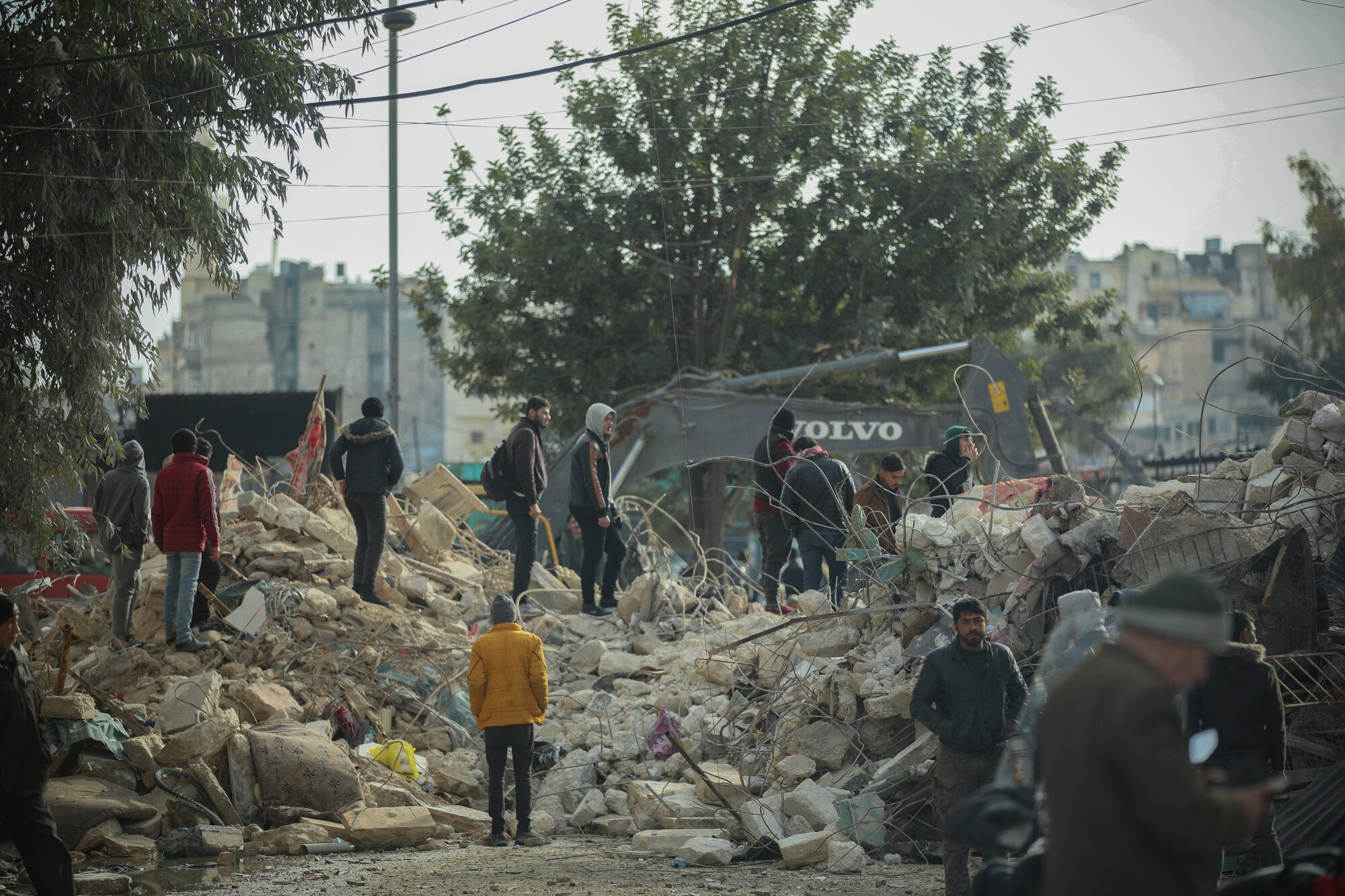Teams assessing immediate needs of survivors of earthquake
The death toll is mounting in the areas of Türkiye (Turkey) and Syria hit by earthquakes on February 6, and cold weather is exacerbating search and rescue efforts.
Oxfam staff in the northern Syrian city of Aleppo report survivors are still desperately searching through rubble for family members and seeking shelter in schools, mosques, and other communal buildings still standing. Oxfam staff report that at least 50 buildings have collapsed.
“When walking through Aleppo, our team was struck by [people’s] fear, the fear of an uncertain future due to the loss of their homes and livelihoods, and not knowing what tomorrow is holding for them,” says Dania Kareh, the media and communications officer for Oxfam in Syria, in a video for social media.
Oxfam’s early efforts in Syria
To help survivors determine if they can return to potentially damaged homes, Oxfam is working out transportation plans for a team of 50 engineers who will evaluate the structural integrity of buildings. “Families need to know if they can go back to their homes,” explained Mati Gomis-Perez, Oxfam’s deputy directory in Syria.
As Oxfam’s Aleppo-based staff continue to assess the needs of people in the city and in nearby areas of Homa and Latakia, they are particularly concerned about risks facing women, children, elderly people, and people living with disabilities. Staff are identifying ways they can ensure security for vulnerable people, in addition to providing clean water and hygiene items, and other assistance.
Nearby areas of northern Syria also have been affected by a cholera outbreak, which is a significant risk for earthquake survivors lacking sources of clean water.
Oxfam is planning to distribute cash to displaced families to help them secure housing, and hygiene items (initially) to 2,000 families in northern Syria.

The earthquakes are catastrophic on their own, but people in Syria have been living though a decade of civil war. More than 15 million people in the country were already in need of humanitarian assistance before this week. There are also 1.8 million refugees from Syria living in the now-devasted southern region of Türkiye.
Oxfam staff assessing needs in southern Türkiye
The government of Türkiye's Disaster and Emergency Management Presidency reports that the quakes have affected 13 million people and that 11,302 buildings have collapsed.
Meryem Aslan, who works for Oxfam and is in the worst-affected areas near Gaziantep, said the scale of destruction doesn’t compare to previous earthquakes in Türkiye. “I was doing needs assessment in the 1999 earthquake in Türkiye,” she told CNN on February 8. “This is not like anything I have seen before.”
She said that 50 kilometers from Gaziantep she saw a building “that was completely collapsed, and all [these] people outside in the rubble, in front of a fire, trying to dig by hand, screaming for their loved ones.”
While the search and rescue efforts continue, KEDV (the Oxfam affiliate in Türkiye) is carrying out its assessment of needs in southern Türkiye. Early reports indicate people need shelter, cash, food, winter clothing, clean water, hygiene supplies like soap, and sanitation systems. Staff report that they intend facilitate distribution of humanitarian aid and work closely with an existing partner network of women’s rights groups active in the affected region, some of which are led by refugees from Syria.
